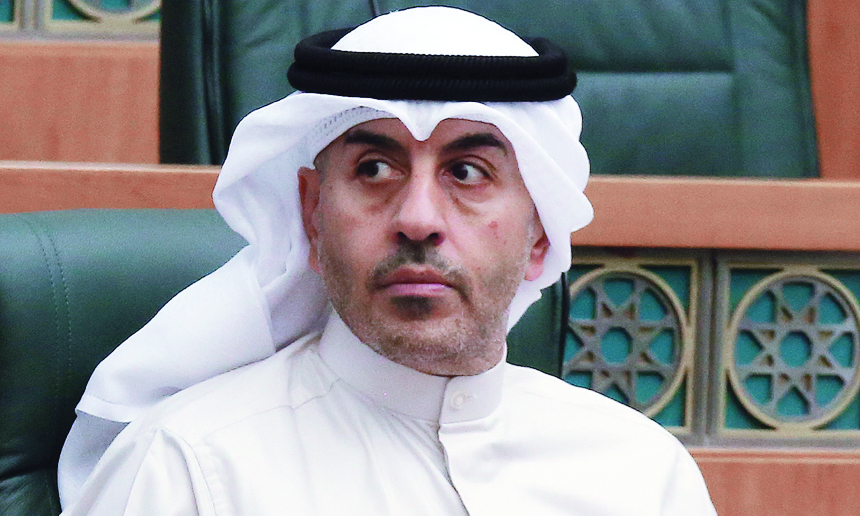KUWAIT: The National Assembly holds regular sessions today and tomorrow to discuss several topics namely an interpellation motion against Minister of Public Works Ali Al-Mousa. Legislators are scheduled to kick off today's session by endorsing minutes and filed reports, then they will proceed with procedures of the interpellation addressed to Al-Mousa, who doubles as the Minister of State for Youth Affairs, by MP Abdullah Al-Mudhaf.
Mudhaf, who filed his motion on February 16, would question the minister over purported complacency in combating corruption in the Public Authority for Agricultural Affairs and Fish Resources and failure to take punitive action against officials involved in irregularities. He is also charging minister Mousa with breaching constitutional jurisdictions and those of officials serving in the same department. Kuwait Constitution's Article 100 entitles every MP to grill the prime minister and cabinet members on matters within their jurisdictions. Article 135 of the parliament's bylaw says the speaker should notify the prime minister and the concerned minister instantly after delivering the quiz motion, which is also included in agenda of the upcoming session to set a date for the interpellation after hearing reaction of the involved minister.
Moreover, the interpellation debate must be held eight days after delivering the motion and that is in non-urgency situations, with approval of the prime minister and the concerned minister. It also entitles the minister to request extension for two weeks; and their request must be approved where the assembly is also entitled to extend the delay further for the same duration. No further delays are allowed without approval of majority of the legislators. The MPs are also due to resume examination into a report by the committee of health, social and labor affairs on replacing the term 'domestic worker' with 'servant', then they will examine the government manifesto for the 16th legislative terms for the years 2021-2022 - 2024-2025.
The bylaw term stipulates that a new cabinet, immediately after its formation, must submit its action plan to the parliament, where the MPs would record their remarks on it. The session agenda also includes reports by committees regarding decrees and bills including one dealing with amendments of the criminal prosecution, the civil service, the Zionist entity's boycott and barring normalization with the Zionist enemy or its organizations. Other topics on the table are development of small and medium enterprises, environment protection, rights of illegal residents and adoption of public departments' final account. - KUNA











